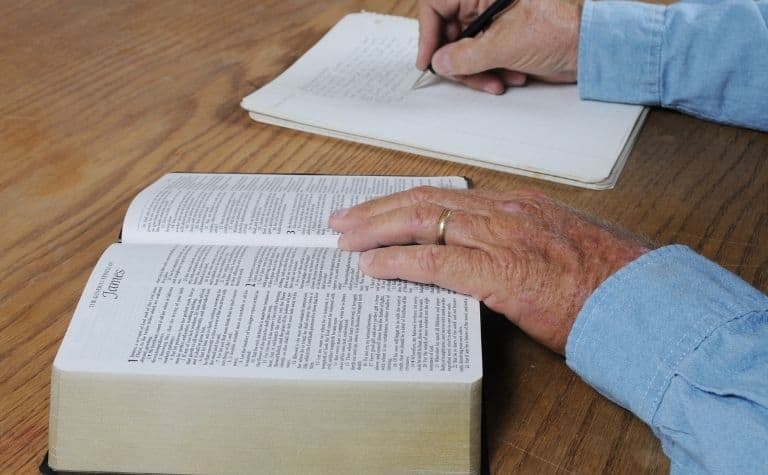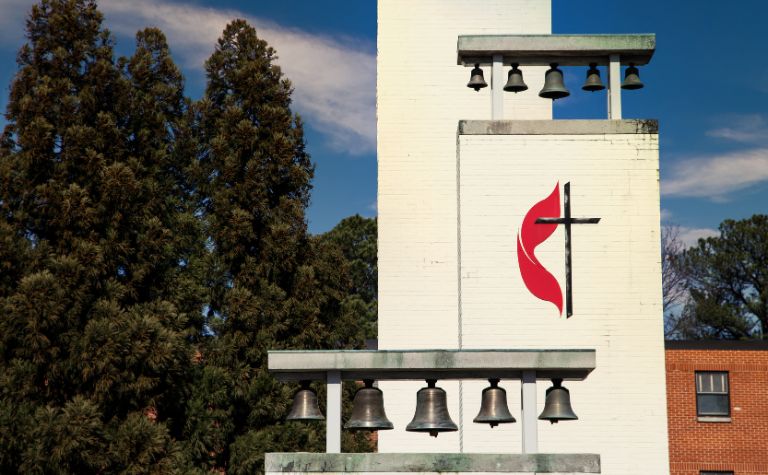Methodism is an essential and influential branch of Protestant Christianity. Predestination is a distinguishing feature of certain Protestant traditions, like the Presbyterian church and Reformed theology. These facts have led many people to wonder if Methodists believe in predestination.
The Methodist church doesn’t believe in predestination, as Calvinist and Reformed theologians define the term. Instead, Methodist theology emphasizes an individual’s freedom to seek God and accept the salvation Jesus Christ offers. The founder of Methodism, John Wesley, was passionately opposed to Calvinistic predestination.
What is predestination, and how do Methodists understand the term when Scripture uses it? What exactly did John Wesley teach about predestination? Does the Methodist church teach “once saved, always saved”? Keep reading to learn more.

Are Methodists Calvinists?
The term “Calvinist” describes people who subscribe to the theological teaching of John Calvin. Calvinism encompasses much more than the doctrine of predestination; however, many people associate the concepts closely. (Also see What Do Methodists Believe About Death?)
Many people even use the terms “Calvinist” and “predestination” synonymously, so when people ask, “Are Methodists Calvinists?” they are inquiring about Methodism’s belief in predestination. (Also see What Do Methodists Believe About Heaven?)
Methodists aren’t Calvinists because they disagree with Calvin’s understanding of predestination. However, Methodists believe in predestination, according to their tradition’s definition of the term.
In one sense, all Bible-based theologies subscribe to “predestination” because Scripture uses the term (or a similar one) in several places:
- Romans 8:30, “And those whom he predestined he also called, and those whom he called he also justified, and those whom he justified he also glorified.” (ESV)
- Ephesians 1:5, “He predestined us for adoption to himself as sons through Jesus Christ, according to the purpose of his will” (ESV)
- Acts 4:27-28, “for truly in this city there were gathered together against your holy servant Jesus, whom you anointed, both Herod and Pontius Pilate, along with the Gentiles and the peoples of Israel, to do whatever your hand and your plan had predestined to take place.” (ESV)
Methodists are Arminians
People compare Calvinism with Arminianism. John Wesley and other Methodists subscribed to the theological teachings of Dutch theologian Jacob Arminius. (Also see Methodism vs. Catholic: What’s the Difference?)
Arminianism, which was largely a response to Calvinism when it was established, teaches that God predestines people based on his foreknowledge of who will choose him. In other words, predestination is conditional, not unconditional, like in Calvinism.
| Tradition | Salvation |
|---|---|
| Calvinism | God unconditionally elects people to salvation and passes over others. Election isn’t based on God’s foresight of who would choose him. |
| Arminianism | God conditionally elects people to salvation based on divinely foreseeing that they would respond to the Gospel. |
| Lutheranism | God unconditionally elects people to salvation. Election isn’t based on God’s foresight of who would choose him. (Also see Methodist vs. Lutheran: What’s the Difference?) |

Did John Wesley Believe in Predestination?
John Wesley didn’t believe in predestination, as Calvinists define the term. He did believe in predestination, according to the Arminian understanding of it.
Wesley emphasized a person’s ability to seek God and receive Christ’s salvation. God, based on his foreknowledge of who would choose him, “predestined” those individuals. (Also see The Methodist Symbol: 5 Interesting Facts)
| Wesley | Calvinism | |
|---|---|---|
| Depravity | Wesley believed that people are born in bondage to sin. | Calvinists hold to original sin and “total depravity,” which means that very aspect of human nature is infected with sin. |
| Grace | “Prevenient grace,” meaning “grace that goes before,” overcomes original sin in Arminianism and enables people to seek God. | Calvinists don’t believe the doctrine of prevenient grace is biblical. Instead, God extends irresistible grace to the elect. God doesn’t force salvation upon the elect, but enables them to believe, which they do. |
| Atonement | Wesley believed in “unlimited atonement,” though he may not have used the term, which means Christ died for the whole world. | Calvinists believe in “limited atonement,” meaning Christ died for the elect. |
| Assurance | Believers can be assured of their salvation in Christ, but those who are genuinely saved can also lose it through disbelief and disobedience. | Since God’s election is secure, people can’t lose their salvation. If a person appeared to be saved and then abandoned their faith, they were never truly saved in the first place. |
What Did John Wesley Think of Calvinism?
Wesley was adamantly opposed to Calvinism. According to a 1798 question-and-answer tract, Wesley taught that Calvinism was a product of the evil one [2].
In response to the question, “What is the direct antidote to Methodism, the doctrine of heart holiness?” he wrote, “Calvinism: all the devices of Satan, for these fifty years have done far less toward stopping the work of God, than that single doctrine. It strikes at the heart of salvation from sin, previous to glory, putting the matter on quite another issue.“

What Did John Wesley Think of Calvinism?
Wesley thought that the theological errors of Calvinism were worse than those in Catholicism. In a 1775 sermon, Wesley makes statements about Calvinism when making the point that people can still be Christians even if they subscribe to some incorrect doctrines.
He first illustrates this point in reference to Catholics, “Persons may be truly religious, who hold many wrong opinions. Can any one possibly doubt of this, while there are Romanists in the world? For who can deny, not only that many of them formerly have been truly religious, as Thomas a Kempis, Gregory Lopez, and the Marquis de Renty; but that many of them, even at this day, are real inward Christians? And yet what a heap of erroneous opinions do they hold, delivered by tradition from their fathers!
Next, he illustrates the same point using Calvinists, “Nay, who can doubt of it while there are Calvinists in the world, — assertors of absolute predestination? For who will dare to affirm that none of these are truly religious men? Not only many of them in the last century were burning and shining lights, but many of them are now real Christians, loving God and all mankind.“
He continues, “And yet what are all the absurd opinions of all the Romanists in the world, compared to that one, that the God of love, the wise, just, merciful Father of the spirits of all flesh, has, from all eternity, fixed an absolute, unchangeable, irresistible, decree, that part of all mankind shall be saved, do what they will; and the rest damned, do what they can!” [3]
Do Methodists Believe In Once Saved, Always Saved?
Methodists don’t believe in “once saved, always saved.” That phrase, which isn’t in the Bible, is sometimes used to describe the Calvinist belief that there is nothing a genuine Christian can do to lose their salvation.
It’s worth noting that many Calvinists don’t like the phrase “once saved, always saved” because they don’t believe it accurately reflects their beliefs about salvation. [4] (Also see Do Methodists Believe in the Trinity?)
Methodists believe that genuine Christians can lose their salvation. The website for the United Methodist Church (UMC), which is the largest denomination in the Methodist tradition, teaches that growth and maturity are necessary for “God’s saving grace to continue its work in us”:
“A short, but very incomplete answer, is that our Church teaches we can end up “losing” the salvation God has begun in us… The profession of our faith and growth in holiness are necessary for God’s saving grace to continue its work in us, and both of these are things we must engage in for our love to be genuine and not compelled.”
It continues, “We thus remain free to resist God’s grace, to revert to spiritual torpor, and possibly experience spiritual death and Hell as its consequence.” [5]
References:
[1] Source
[2] Source
[3] Source
[4] Source
[5] Source
Related Questions
Methodism is a prominent branch of Protestant Christianity that dates to the mid-18th century. Pentecostalism is a movement within Protestantism that originated in the early 20th century. What's the...
Methodism and Lutheranism are two of the most influential Protestant Christian denominations. Many of their core beliefs are the same, yet they also have critical theological...
